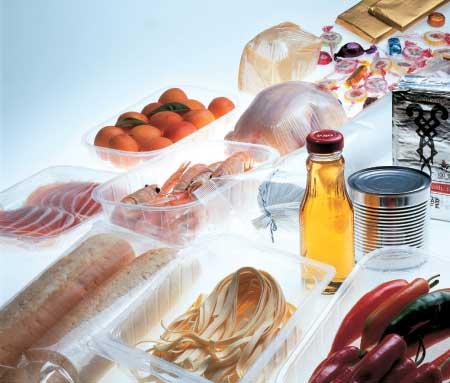|
Processed food often has to travel a long way before it reaches the safety of a home refrigerator – a journey which involves numerous risks of contamination or microbial attached, such as salmonella or listeria.
To prevent this from happening, machine and installation builders equip their processing filling machines with hygienic automation technology.
Consumers are looking for reliable quality when they buy their groceries. Hygienic manufacturing, filling and packaging in the food industry ensures first-class products. Customer-specific solutions from Festo constitute an important factor in the hygienic value creation chain.
They key phrases in automated food production are cost-effective solutions together with high hygiene standards. However, the decisive factors also include variety in products, taste and packaging, which has consequences for the set-up times and modularity of production facilities. The examples described below show how automation technology can make food production safer and more efficient. It is advantageous for a single sourcing policy if the automation supplier can provide both process and factory automation.
From process automation…
The production process itself involves many different activities: mixing and stirring, sterilisation, pasteurisation, homogenisation, filtration, dosing, weighing, filling and storage. Automation ensures the reliability of these processes. Semi-rotary actuators and linear drives or cylinders DFPI with integrated guides and displacement encoders open and close ball valves and butterfly valves. In order to control the many pneumatic semi-rotary actuators and linear drives installed in many breweries, central stainless steel control cabinets are used in the fermentation cellars with CPX valve terminal and service units for compressed air preparation, together with appropriate sensors.
…to factory automation
In the splash zone of food processing operations, the automation technology does not come into contact with food. Nonetheless, corrosion-proof design is mandatory, since water splashes, cleaning agents or dripping food may otherwise damage drives and valve terminals, proximity sensors and fittings. If the installation concept calls for decentralised valve terminals, splashproof clean design valve terminals (CDVI) and individual valves (CDSV) can be installed close to the drives which are to be controlled and require no protective control cabinet.
The clean design cylinders CDC are modular and constructed without sharp edges or corners, ensuring that dirt residues or germs can be completely removed during cleaning. For the handling of workpieces, guided cylinders DGRF are now used, which are available with the option of dry running seals. The cylinder lubrication and seals have FDA certification. The associated proximity sensors are resistant to cleaning agents, heat and mould.
The star with gentle curves
The star performer in the food zone is the stainless steel cylinder CRDSNU. It is easy to keep clean. Its self-adjusting end position cushioning PPS saves users alot of time during set-up. The CRDSNU also proves its worth in a machine for sorting salmon. Saline sea water and fish substances mean that the round cylinder is put to a hard test. What is more, it is cleaned daily with chemical additives. A standard round cylinder would give up the ghost in this application after just a few weeks. The CRDSNU however, is in its element in this humid and aggressive environment.
To ensure that drives do not fail in harsh environments, users can choose seals from the Festo modular seal system. This includes FDA-compliant standard seals suitable for food use with normal cleaning. seals for unlubricated operation and seals for applications with intensive cleaning, FKM seals are available for high temperatures up to 120°C and for acid environments while there are hard scrappers for low temperatures down to -40°C and for applications involving sugar crystals.
|
End-of-line packaging
Festo can provide a variety of handling solutions with a choice of drives to meet individual customers’ requirements with regards to packaging, labelling, testing and monitoring in the non-food zone at the end of the value creation chain. Its handling experts can select from more than 30,000 products and use appropriate servopenuamtic, electric or pneumatic drives for the customer application in question, together with the associated controls on valve terminal technology, sensor technology and vision systems.
These are fully assembled and tested and delivered directly to the machine as ready to install system solutions – complete with all the design data and circuit diagrams as well as a comprehensive functional and fixed price guarantee. Users receive not only hardware in the form of a connection ready module or subsystem but a complete value creation package. Complete solutions mean less work for customer personnel, reduce system design costs, simplify the procurement process and reduce process costs. It is rare that two handling systems are the same. The spectrum ranges from simple pick and place systems through to linear gantries, cantilever gantries, 3D gantries and rod kinematics robotic system tripod, high speed gantries and individual application- specific gripper systems.
Putting an end to waste
Less machine downtime through detection and elimination of leaks in compressed air systems is crucial. That is why services such as total productive maintenance condition monitoring and energy-saving services are becoming key factors in food processing. Many companies have declared war on waste and high energy prices.
Food safety and energy efficiency are not mutually exclusive. On the contrary, just as food remains fresh for longer through the use of hygienic automation technology, the plants in which they are produced always stay modern, reflecting state of the art technology.
Email: sandra_gargano@au.festo.com
|






